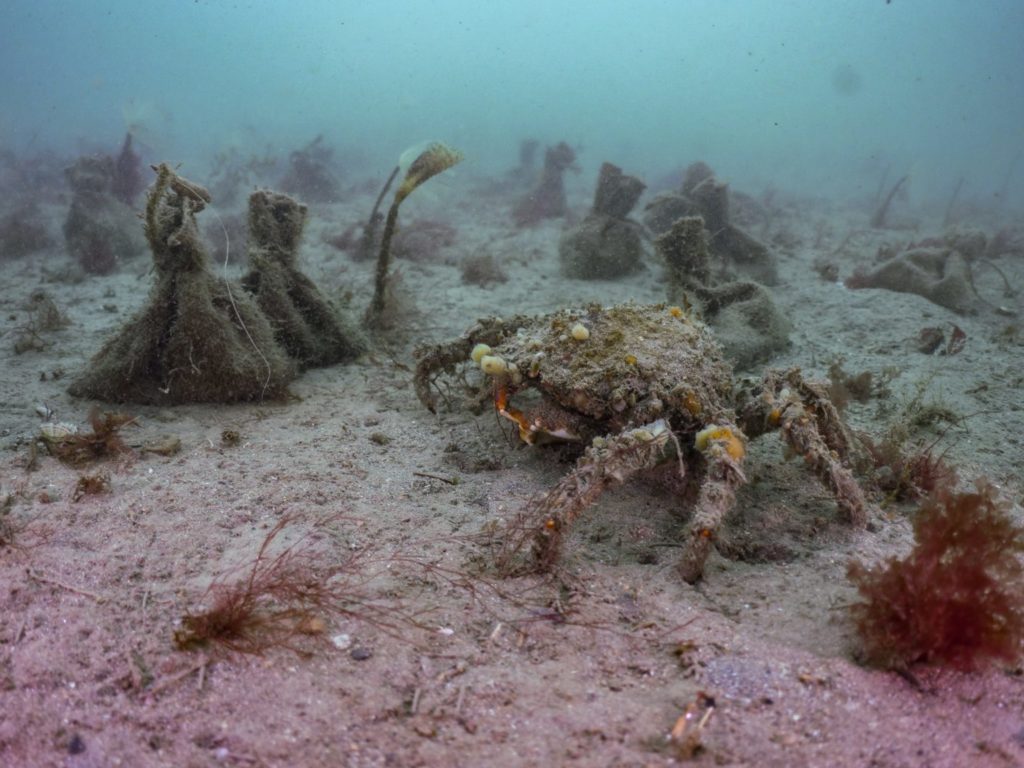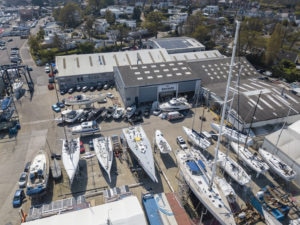Seagrass meadow planting begins today in Plymouth Sound
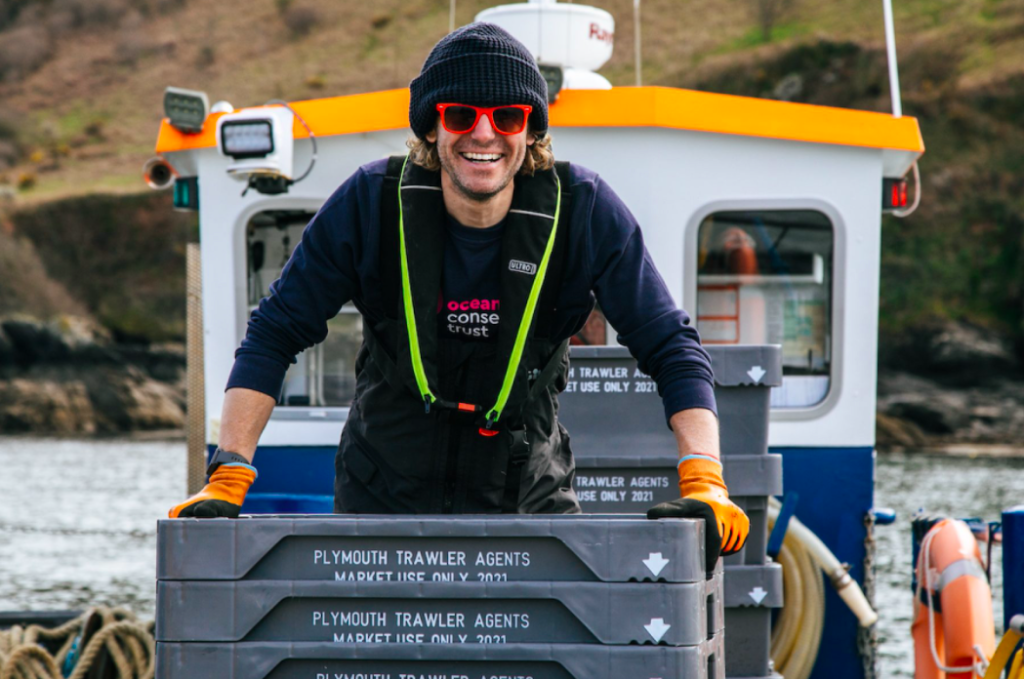
A total of 16,000 seagrass seed bags and 2,200 seedling bags are being planted by the Ocean Conservation Trust (OCT) as part of the LIFE Recreation ReMEDIES project, being led by Natural England, to help support and improve the resilience of the marine environment. Today [21 April 21] sees the start of the planting in Plymouth Sound.
The four-year project aims to plant a total of eight hectares of seagrass meadows – four hectares in Plymouth Sound and four hectares in the Solent Maritime Special Area of Conservation.
Today’s work has been made possible by a tremendous community effort.
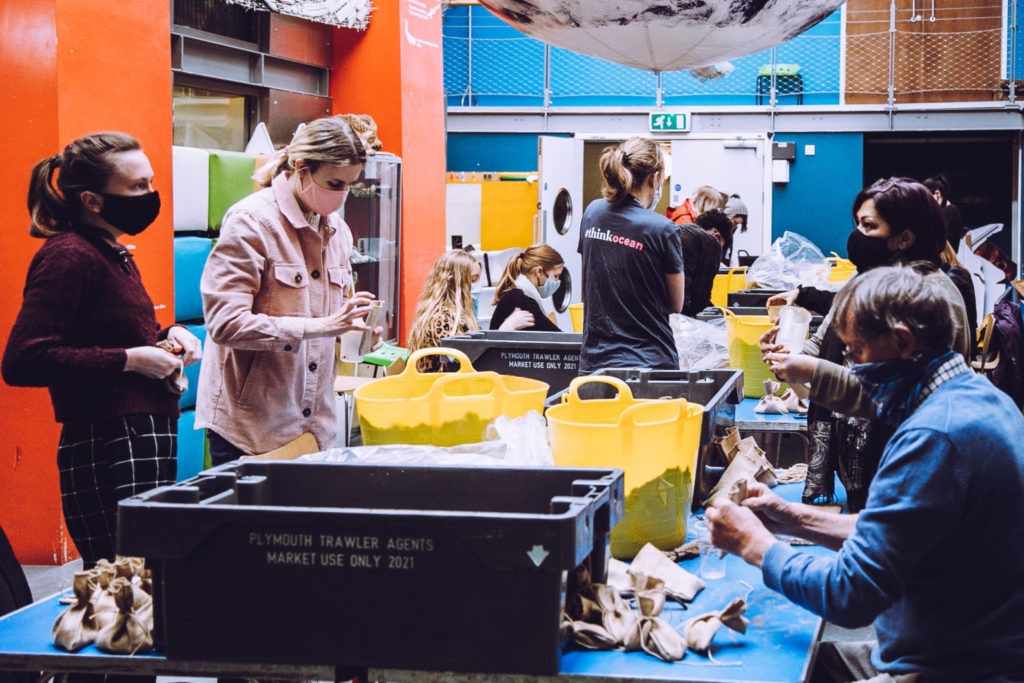
The success of this project could not have happened without all the amazing volunteers who gave their time, says OCT. That list of volunteers includes Farmable Foundation, Sound Diving Plymouth, Falmouth Marine Conservation Group, MCS Sea Champions, National Marine Aquarium staff and many others who took part for the seed bag packing efforts.
Logistical support has been provided by Plymouth Trawler Agents (which loaned fish boxes), Cattewater Harbour Commissioners (which provided a barge) and Bags of Ethics / Supreme Creations (the hessian bags).
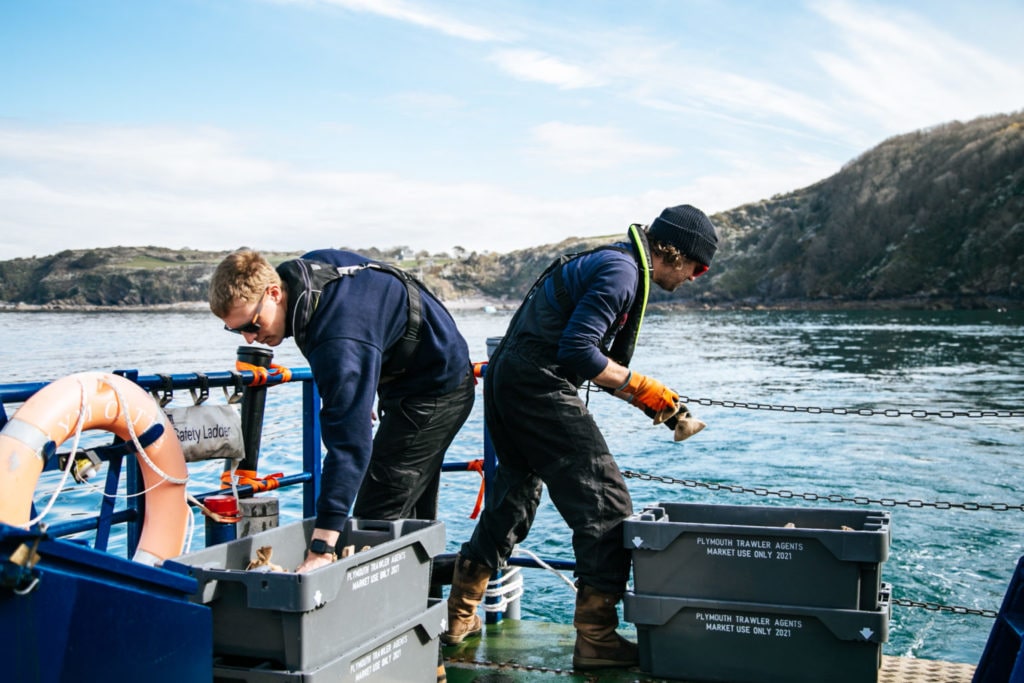
This work is extremely important as it is estimated that the UK may have lost up to 92 per cent of its seagrass. Factors including wasting disease, pollution and physical disturbance have been identified as contributing causes.
By planting seagrass in the Sound, the project hopes to create more seagrass meadows which provide homes for juvenile fish and protected creatures like seahorses and stalked jellyfish. Seagrass also has an integral role in stabilising the seabed, cleaning the surrounding seawater and capturing and storing significant amounts of carbon.
The OCT has been leading the restoration work as a project partner. All the seagrass seeds have been bagged at the National Marine Aquarium in Plymouth by Aquarium and OCT staff, as well as volunteers. Seedlings have been growing in the Aquarium’s special seagrass laboratory since January.
“By working together, we can raise awareness about the importance of seagrass, reduce the impact on these sensitive habitats and encourage both local communities and visitors to help look after our ‘blue’ environment for the future,” says Paul Barnard, service director for strategic planning and infrastructure at Plymouth City Council.
Seagrass is delicate and can be damaged by activities such as the anchoring, mooring and launching of leisure boats, as well as other shore and water-based activities.
ReMEDIES is funded by the EU LIFE programme and led by Natural England in partnership with Ocean Conservation Trust (OCT), Marine Conservation Society, Royal Yachting Association and Plymouth City Council/Tamar Estuaries Consultative Forum.
